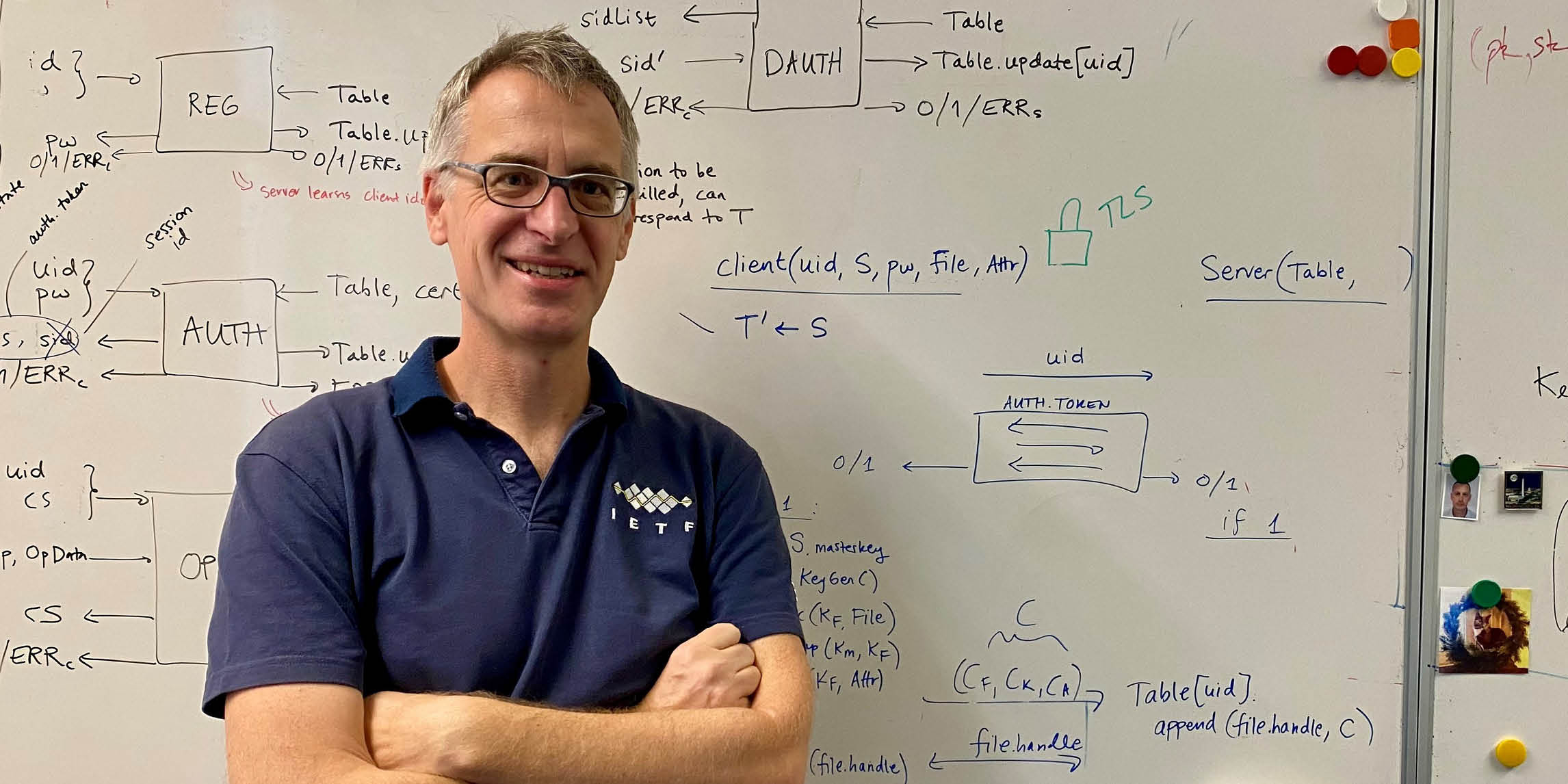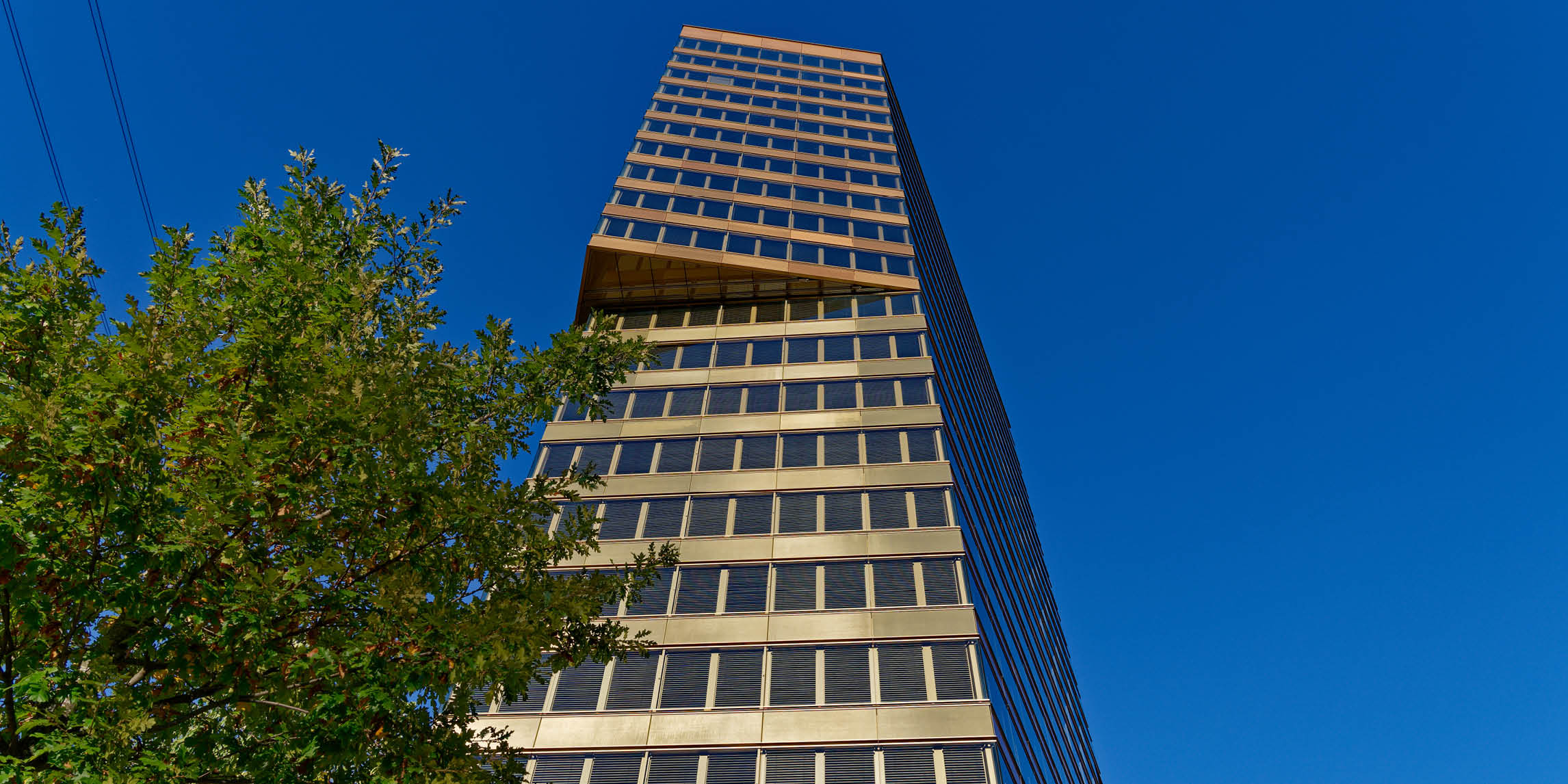“The human version of the disc defragmentation problem”
The Department of Computer Science is rapidly growing, and so is the number of its current sites. Being so fragmented and spread around the city, it can be difficult for department members to find a sense of belonging. Professor Kenny Paterson, the new Department Head, talks about the challenges but also opportunities he will face in this demanding role.

Professor Paterson, do you think that there is a sense of unity within the department?
I think there is a sense of unity, but it is interesting to think about what people identify with. Is it ETH as an organisation, the department, their institute or their group? My sense is that doctoral students really identify with their group, because that is who they spend the most time with. I think the professors identify with the department but also with their group. It is the engine that produces their research and they run it day to day. However, we do have activities which take the professors away from their group to get together and think more strategically and long term about the department, like our annual retreat. We also have several events bringing different parts of the department together like Christmas apéros or the VIScon, organised by the association of computer science students (VIS), and graduation ceremonies. Interpersonal connections are very important for creating a sense of belonging, an identity, and are helpful in creating a common purpose to achieve a goal. Unfortunately, as you grow, it becomes harder and harder to have a proper personal relationship with all your colleagues.
Which challenges does the rapid growth of the department pose?
We have grown a lot. I myself am one of the people who arrived recently as part of the growth plan. It is a positive sign that ETH has invested so much in the department. That is a great indicator of how important computer science has become in Switzerland and globally. Whenever you have that kind of growth, you also have growing pains. We have had to get additional space in an ad hoc way. That is why we are scattered around the city in different buildings. This creates obvious issues around integration and communication. It just becomes harder to bump into certain colleagues if you are not even in the same building. When you as a department hit your space limits, everything is blocking everything else. You have no flexibility to move some groups around where they would fit better. This is a well-known problem in computer science: when you are storing lots of files on a hard disc and it starts to get full, it becomes very hard to find space for a new file or to switch files around. What we have, therefore, is the human version of the disc defragmentation problem. We have the mathematical and computer science tools to solve the problem, but to solve the problem you need the space. We need to find a medium-term solution of achieving a defragmentation and bringing some of these pieces back together. And the department may continue to grow – we are putting big bets on computer science as a subject going into the future. There is a huge shortage of IT professionals in Switzerland now and we can only help to partially fill that gap with our graduates. Having enough space for that development is a very significant challenge for the department.
“We are putting big bets on computer science as a subject going into the future.”Professor Kenny Paterson
Will the move to the Andreasturm in Zurich-Oerlikon be an opportunity for the department members or add to the challenges?
I think it is a great opportunity because it is a great space, but it will also bring some challenges. In the spring of 2023, some of our colleagues will move there, and it will be our “Computer Science North” campus. It can be reached from here in about 20 minutes by tram. For some people, it will be quite a disruption and change to move there. One of my jobs will be to make sure that I spend time there and become visible. This way, people can interact with me directly rather than having to come all the way to my office. Another challenge is that there is no teaching space in that building. Teaching staff will have to travel to the centre of Zurich and back, which could make them feel rootless. I think the space in Zurich-Oerlikon will be very nice, but it will also create a gap in the department. We need to build bridges across the gap, for example by having the professor conference meetings there. We already practise this with other meetings that we sometimes hold in the STF.
What are your goals as the new Department Head?
As a professor in this department, I feel like I have a tremendous responsibility to build a successful research group and deliver great research and teaching. Being the Head means I will have to put less focus on that. Getting a balance between the different activities will be difficult and will require discipline from me. Having watched my predecessor, Timothy Roscoe, do the job, I see how many different situations he is pulled into. There is always something coming up that is very important at the time and you have to put the fire out, but you also have to plant some trees that will mature in 20 years. This firefighting aspect versus the longer-term strategic aspect is another thing I will have to balance.
As the new head of the department with more than 600 employees and over 1,000 students, I would like to get a sense of what is going on and what they are feeling. I have a direct connection with the people who run our association of scientific staff (VMI). But that also presents a filter: the information comes collated and aggregated, but what do the individuals think? Making time to talk to people is important. I hope they feel that my door is always open.
Furthermore, maintaining personal detachment from the different problems is also going to be challenging for me because I like being engaged and helping people. I will have to practise British diplomacy and hold my personal opinions back. This role is about representing the department, not telling people what to do. Gathering opinions, forming a consensus and trying to get the best possible result for everyone. And lastly, making sure the department is growing in the right direction.
Where do you see the department in five years?
I think the department will have grown more, but the pace will slow down because of the economic circumstances. I hope five years from now we will have figured out a medium-term solution that enables us to concentrate on just two or three sites. As the student numbers grow, I hope we will get additional support for teaching. Particularly at Master’s level, as our Master’s programmes are very popular. It is also important to have that programme properly established and supported. That is a good challenge for me and probably enough to be chewing on in the next few years.
